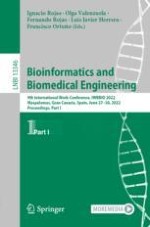2022 | OriginalPaper | Buchkapitel
A Deep Learning Framework for the Prediction of Conversion to Alzheimer Disease
verfasst von : Sofia Ostellino, Alfredo Benso, Gianfranco Politano
Erschienen in: Bioinformatics and Biomedical Engineering
Aktivieren Sie unsere intelligente Suche, um passende Fachinhalte oder Patente zu finden.
Wählen Sie Textabschnitte aus um mit Künstlicher Intelligenz passenden Patente zu finden. powered by
Markieren Sie Textabschnitte, um KI-gestützt weitere passende Inhalte zu finden. powered by
